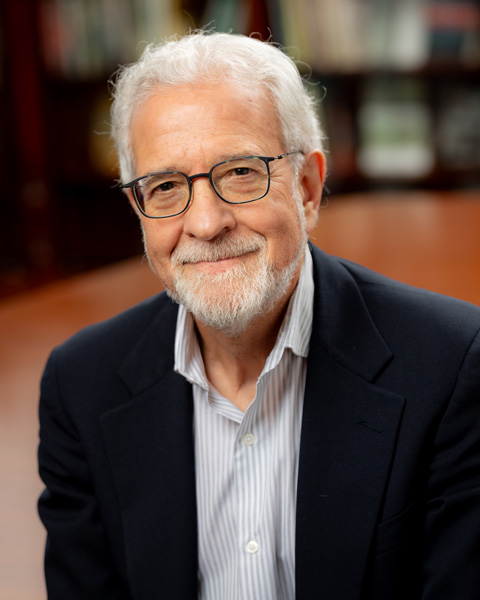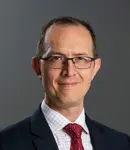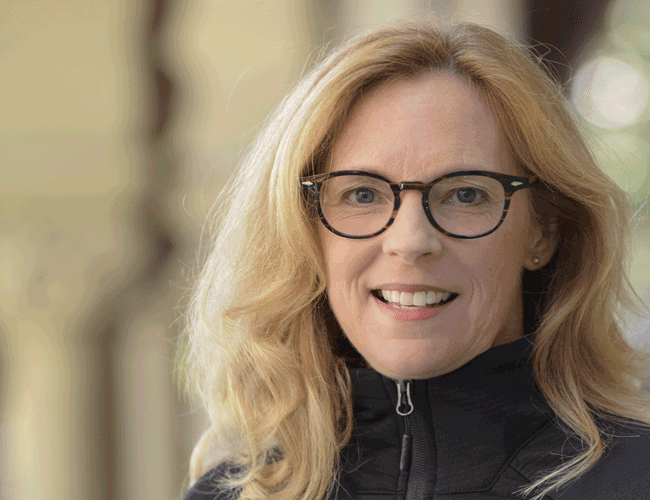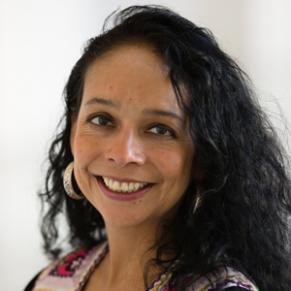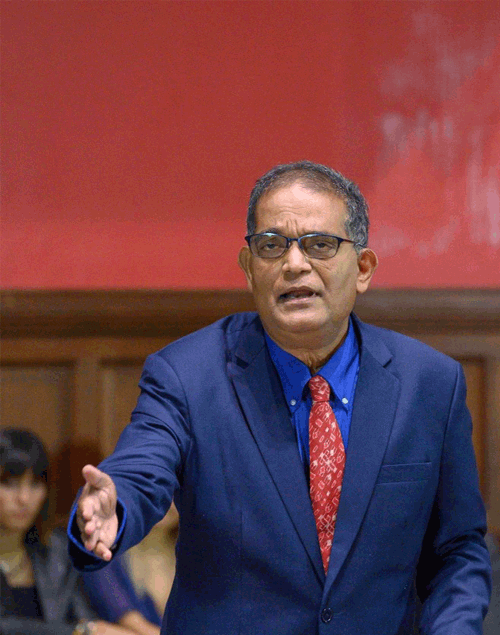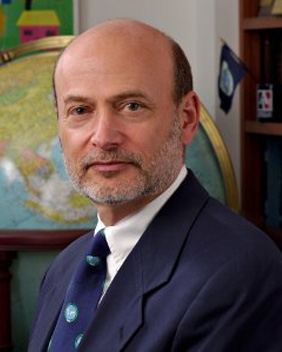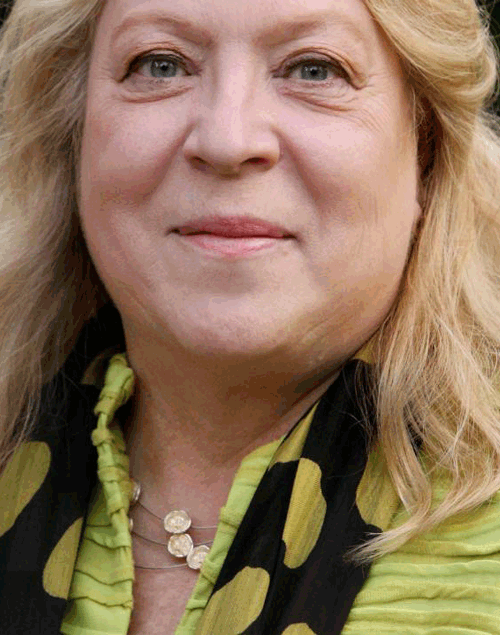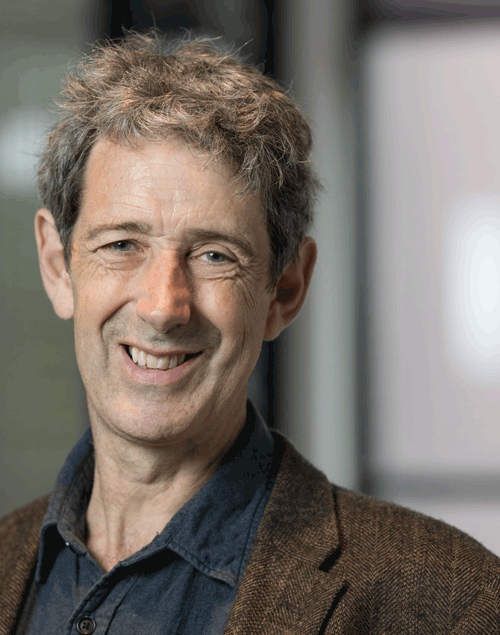Bringing the World to Campus
Established in 2016 and hosted by the Department of Political Science and Public Administration, the Liebert World Affairs Lecture Series brings world-class scholars offering new and different perspectives on world politics to campus. Students, faculty, staff and the Southwest Florida community have long enjoyed engaging lectures that stimulate the mind.
Our Spring 2026 speaker series will be announced in December 2025. Please check back!
2025 Liebert Speakers


Charles King
February 6, 2025
Professor Charles King is an historian, social scientist, and author. His books include the New York Times-bestselling Gods of the Upper Air, which received the Francis Parkman Prize and was shortlisted for the National Book
Critics Circle Award,
Read more...


Mary Elise Sarotte
February 21, 2025
Professor Mary Elise Sarotte has authored five books and co-edited a sixth. Her most recent book, Not One Inch: America, Russia, and the Making of Post-Cold War Stalemate, was shortlisted for both the Cundill History Prize and the Duke of Wellington History
Medal; received the Arthur Ross Prize Silver Medal; won the Pushkin House Prize for
Best Non-Fiction Book on Russia
Read more...


Murhaf Jouejati
March 14, 2025
Dr. Murhaf Jouejati specializes in Syrian and Middle East political affairs -- both as an academic and
as a practitioner. He is currently a Distinguished Visiting Professor of Middle East
studies and Global Affairs and Chair of the Class of ’55 (both History and Political
Science departments) at the US Naval
Read more...
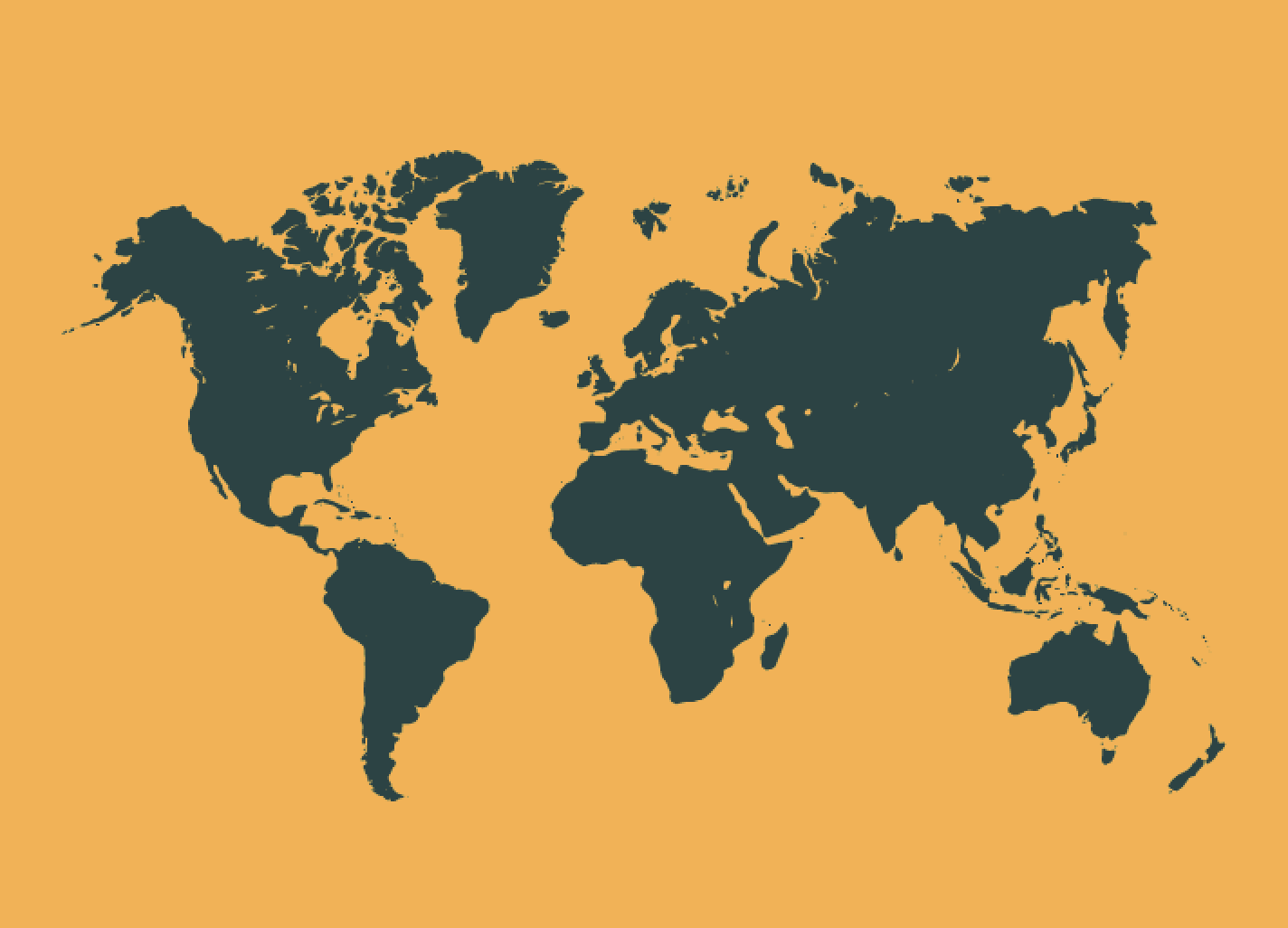
Helpful Resources
- FGCU Political Science/Public Administration Department
- Joseph Nye: "What Is a Moral Foreign Policy?"
- Jan-Werner Müller: "Real Citizens"
WGCU Interviews with Liebert Speakers
- Prof. Joseph Nye (2020)
- Prof. Karen Jacobsen (2019)
- Ms. Suzy Hansen (2019)
- Prof. Jack Goldstone (2018)
- Prof. Lisa Anderson (2018)
- Ms. Sarah Chayes (2017)
- Prof. Stephen Walt (2016)
Did you know?
When you support FGCU, your gifts help to shape lives and create opportunities that impact generations to come.
DONATEAbout our department
The mission of the Department of Political Science and Public Administration is to contribute to effective policy-making and administration in the public sector, as well as to advance knowledge about government and politics at the local, state, national, and international levels.
GET DETAILS College Details-
Liebert Family Legacy
Toggle More InfoBernice Liebert Bongiorno died in March 2008 at age 92. Her first husband, noted neuropsychiatrist Erich Liebert, died in 1960. She left a bequest that established the Dr. Edward Liebert Endowed Scholarship Fund and the Dr. Erich Liebert World Affairs Program Endowment Fund.
The couples' daughter, Pamela Liebert, a Southwest Florida resident, says of her parents, "He was the love of her life and she wanted to make a gift that would honor him. She knew he loved teaching and thought this was a good way to accomplish that."Dr. Liebert held a professorship at Northwestern University's Feinberg School of Medicine, ran a medical practice in Chicago and conducted a great deal of research in the area of psychiatric illness. He was also the clinical director of Elgin State Hospital and was a fellow in the American Academy of Neurology.The couple lived in Elgin, Illinois for many years, spending part of each winter on Fort Myers Beach as far back as the 1950s.
Bernice Liebert Bongiorno died in March 2008 at age 92. Her first husband, noted neuropsychiatrist Erich Liebert, died in 1960. She left a bequest that established the Dr. Edward Liebert Endowed Scholarship Fund and the Dr. Erich Liebert World Affairs Program Endowment Fund.
-
Previous Liebert Lectures
Toggle More Info“Making Autocracy Worse:
How Putin's War in Ukraine has Ruined 30 Years of Reform in Russia”Omer Bartov is the Samuel Pisar Professor of Holocaust and Genocide Studies at Brown University.
Omer Bartov has also written on representations of antisemitism in twentieth-century cinema. More recently he has focused on interethnic relations, violence, and population displacement in Europe and Palestine. His latest books include Anatomy of a Genocide: The Life and Death of a Town Called Buczacz (2018), Tales from the Borderlands: Making and Unmaking the Galician Past (2022), and Genocide, The Holocaust and Israel-Palestine: First-Person History in Times of Crisis (2023). He is currently writing a book tentatively titled “The Broken Promise: A Personal-Political History of Israel and Palestine,” which is dedicated to investigating the first generation of Jews and Palestinians in Israel, a generation to which he also belongs. His novel, The Butterfly and the Axe, was published in 2023 in the United States and Israel.
Omer Bartov is the Samuel Pisar Professor of Holocaust and Genocide Studies at Brown University. Born in Israel and educated at Tel Aviv University and St. Antony's College, Oxford, his early research concerned war crimes in World War II and the links between war and genocide.
“U.S.-China Rivalry in a Neomedieval World: Security in an Age of Weakening States”
By Timothy R. Heath, Senior International Defense Researcher at the RAND Corporation
In addition to his publications with the RAND Corporation, Heath has published numerous articles and one book. Fluent in Mandarin Chinese, he has extensive experience analyzing China's national strategy, politics, ideology, and military, as well as Asian regional security developments. He has a Ph.D. in political science from George Mason University and an M.A. in Asian studies from The George Washington University.
Timothy R. Heath is a senior international defense researcher at the RAND Corporation. Prior to joining RAND, Heath had over fifteen years of experience in the U.S. government researching and analyzing military and political topics related to China.
“The Gaza War and the Crisis of the Greater Middle East”
By F. Gregory Gause III, Professor of International Affairs and John H. Lindsey ’44 Chair at the Bush School of Government and Public Service, Texas A&M University.
Professor Gause's research focuses on the international politics of the Middle East, particularly the Arabian Peninsula and the Persian Gulf, and American foreign policy toward the region. He has published three books, most recently The International Relations of the Persian Gulf (Cambridge University Press, 2010). His articles have appeared in Foreign Affairs, Foreign Policy, Middle East Journal, Security Studies, Journal of Democracy, Washington Quarterly, National Interest, and in other journals and edited volumes. He received his Ph.D. in political science from Harvard University in 1987 and his B.A. (summa cum laude) from St. Joseph's University in Philadelphia in 1980. He studied Arabic at the American University in Cairo (1982-83) and Middlebury College (1984).
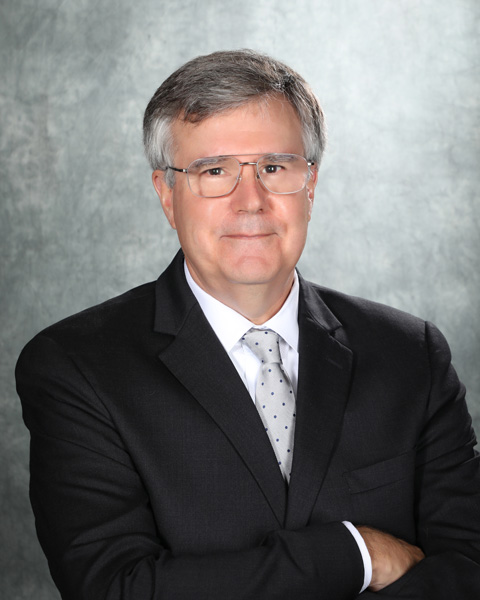
F. Gregory Gause III is Professor of International Affairs and John H. Lindsey ’44 Chair at the Bush School of Government and Public Service, Texas A&M University. He served as Head of the School’s Department of International Affairs from 2014 to 2022 and is an affiliate of the School’s Albritton Center for Grand Strategy. He is currently working at the Bush School's teaching site in Washington, D.C., where he is also a Senior Associate at the Center for Strategic and International Studies. He was previously on the faculties of the University of Vermont (1995-2014) and Columbia University (1987-1995) and was Fellow for Arab and Islamic Studies at the Council on Foreign Relations in New York (1993-1994). During the 2009-10 academic year he was Kuwait Foundation Visiting Professor of International Affairs at the Kennedy School of Government, Harvard University. In spring 2009 he was a Fulbright Scholar at the American University in Kuwait. In spring 2010 he was a research fellow at the King Faisal Center for Islamic Studies and Research in Riyadh, Saudi Arabia. From 2012 to 2015 he was a non-resident Senior Fellow at the Brookings Doha Center.
“Making Autocracy Worse:
How Putin's War in Ukraine has Ruined 30 Years of Reform in Russia”By Kathryn Stoner (Mosbacher Director of the Center on Democracy, Development, and the Rule of Law (CDDRL))
In addition to many articles and book chapters on contemporary Russia, she is the author or co-editor of six books: "Transitions to Democracy: A Comparative Perspective," written and edited with Michael A. McFaul (Johns Hopkins 2013); "Autocracy and Democracy in the Post-Communist World," co-edited with Valerie Bunce and Michael A. McFaul (Cambridge, 2010); "Resisting the State: Reform and Retrenchment in Post-Soviet Russia" (Cambridge, 2006); "After the Collapse of Communism: Comparative Lessons of Transitions" (Cambridge, 2004), coedited with Michael McFaul; and "Local Heroes: The Political Economy of Russian Regional" Governance (Princeton, 1997); and "Russia Resurrected: Its Power and Purpose in a New Global Order" (Oxford University Press, 2021).
She received a BA (1988) and MA (1989) in Political Science from the University of Toronto, and a PhD in Government from Harvard University (1995). In 2016 she was awarded an honorary doctorate from Iliad State University, Tbilisi, Republic of Georgia.
Kathryn Stoner is the Mosbacher Director of the Center on Democracy, Development, and the Rule of Law (CDDRL), and a Senior Fellow at CDDRL and the Center on International Security and Cooperation at FSI. From 2017 to 2021, she served as FSI's Deputy Director. She is Professor of Political Science (by courtesy) at Stanford and she teaches in the Department of Political Science, and in the Program on International Relations, as well as in the Ford Dorsey Master's in International Policy Program. She is also a Senior Fellow (by courtesy) at the Hoover Institution.
“The Current State of U.S.-Mexico Relations: Partners or Distant Neighbors?”
By Professor Guadalupe Correa-Cabrera (The New School for Social Research)
Professor Correa-Cabrera is author of Los Zetas Inc.: Criminal Corporations, Energy, and Civil War in Mexico (University of Texas Press, 2017; Spanish version: Planeta, 2018). She is co-editor (with Victor Konrad) of North American Borders in Comparative Perspective (University of Arizona Press, 2020). Her two most recent books (co-authored with Dr. Tony Payan) are entitled Las Cinco Vidas de Genaro García Luna (The Five Lives of Genaro García Luna; El Colegio de México, 2021) and La Guerra Improvisada: Los Años de Calderón y sus Consecuencias (The Improvised War: Calderón’s Years and Consequences; Océano, 2021). She is currently working on a new book project tentatively titled: Coyotes Inc.: The Industry of Human Smuggling and its Transnational Crime Networks. She is co-editor of the International Studies Perspectives journal (ISP, Oxford University Press) and past President of the Association for Borderlands Studies (ABS).
Professor Guadalupe Correa-Cabrera (Ph.D. in Political Science, The New School for Social Research) is Professor at the Schar School of Policy and Government, George Mason University. Her areas of expertise include Mexico-U.S. relations, organized crime, immigration/migration, border security, social movements and human trafficking.
“What Kind of World Order? Unipolar, Multipolar, 'Post-American' or Multiplex”
By Amitav Acharya (UNESCO Chair, American University)
While many leaders, scholars and pundits see the world entering into a “multipolar”, or “post-American” phase, Professor Acharya argues that it will be a Multiplex World. In this world, there are no dominant producers, directors, actors or scripts. The US will remain a key player but will no longer enjoy global dominance. At the same time, leadership in the world will be more diverse, with several countries, non-state actors and regional blocs taking on greater roles to manage different issues areas in their own regions and the world at large. The power shift from the West to the Rest will continue. Economic and political interdependence among nations will not end but take on new forms. Such a world would face perils such as climate change and pandemics, but it is too soon to call it a “world on fire”. New ways of managing peace and stability will emerge due to a common imperative of all to survive and prosper.
Professor Acharya's Bio
Amitav Acharya is the UNESCO Chair in Transnational Challenges and Governance and Distinguished Professor at the School of International Service, American University, Washington, DC. Previously he was a Professor at York University, Toronto and University of Bristol, U.K. He was the inaugural Nelson Mandela Visiting Professorship in International Relations at Rhodes University, South Africa, the inaugural Boeing Company Chair in International Relations at the Schwarzman Scholars Program at Tsinghua University, Fellow of Harvard’s Asia Center and John F. Kennedy School of Government, and Christensen Fellow at Oxford. His books include The Making of Global International Relations (Cambridge 2019: with Barry Buzan); Constructing Global Order (Cambridge 2018); The End of American World Order (Polity 2014, 2018); Why Govern? Rethinking Demand and Progress in Global Governance (editor, Cambridge 2016); The Making of Southeast Asia (Cornell 2013); Whose Ideas Matter (Cornell 2009); and Constructing a Security Community in Southeast Asia (Routledge, 2001, 2009, 2014).
“From Pax Americana to a Multiplex World: The Changing Architecture of Global Cooperation”
By Louis W. Goodman (American University) and Amitav Acharya (UNESCO Chair, American University)
The shifting pattern of global leadership is examined using a new concept for describing world order – Multiplexity. Our analysis shows the world order changing from British leadership (Pax Britannica) to United States leadership (Pax Americana), to what we call a “Multiplex” order, or a more decentered, pluralistically led world. To do this we use a new dataset composed of post-World War II treaties to measure interaction density and proximity allowing us to analyze leadership as a key driver of world order and thus to draw conclusions about it. Our analysis shows a decline in the relative importance of great powers, an increase in the relative leadership and power of middle and small powers, and the significance of clusters of cooperation among nations that are not geographically close.
Professor Goodman's Bio
Louis W. Goodman is Emeritus Dean and Professor of International Relations at American University’s School of International Service. He served as SIS Dean from 1986 to 2011. Under his leadership SIS became the largest school of international relations in the United States. Previously Dr. Goodman served on the faculty of Yale University’s Department of Sociology and as Director of the Latin American and Caribbean Programs of the Social Science Research Council and The Woodrow Wilson International Center for Scholars. He has held visiting appointments at Tsinghua University (Beijing), the National University of Singapore, and Manipal University (India). He has been awarded Honorary Doctorates from San Martin de Porres University (Lima), the United Nations University for Peace (San Jose), and Ritsumeikan University (Kyoto). He has held leadership positions in the Association of Professional Schools of International Affairs, the American Sociological Association, the Latin American Studies Association, and the International Studies Association. The author of numerous books and articles, Dr. Goodman’s current research focuses on public goods and sustainable development and on democracy building and civilian control of the armed forces.
Professor Acharya's Bio
Amitav Acharya is the UNESCO Chair in Transnational Challenges and Governance and Distinguished Professor at the School of International Service, American University, Washington, DC. Previously he was a Professor at York University, Toronto and University of Bristol, U.K. He was the inaugural Nelson Mandela Visiting Professorship in International Relations at Rhodes University, South Africa, the inaugural Boeing Company Chair in International Relations at the Schwarzman Scholars Program at Tsinghua University, Fellow of Harvard’s Asia Center and John F. Kennedy School of Government, and Christensen Fellow at Oxford. His books include The Making of Global International Relations (Cambridge 2019: with Barry Buzan); Constructing Global Order (Cambridge 2018); The End of American World Order (Polity 2014, 2018); Why Govern? Rethinking Demand and Progress in Global Governance (editor, Cambridge 2016); The Making of Southeast Asia (Cornell 2013); Whose Ideas Matter (Cornell 2009); and Constructing a Security Community in Southeast Asia (Routledge, 2001, 2009, 2014).
“Democracy in Crisis”
By Professor Kim Lane Scheppele (Princeton University)
Around the world, democratic citizenries are electing leaders who proceed to dismantle previously existing constitutional constraints on the power of the executive. From Hungary and Poland, to Venezuela and Ecuador, to Turkey and Russia, and even in the United States, democratically elected leaders are eschewing checks and balances and rejecting independent judiciaries, media and civil society. These new autocratic leaders appear wildly popular and are often reelected. Why have democratically elected leaders with autocratic aspirations appeared across such a wide array of democratic governments at once? How have they undermined constitutional government and yet claimed democratic legitimacy? And, most crucially, what can be done to restore the promise of constitutionalism?
Professor Scheppele's Bio
Professor Kim Lane Scheppele is the Laurance S. Rockefeller Professor of Sociology and International Affairs in the Woodrow Wilson School and the University Center for Human Values at Princeton University. From 2005-2015, she was Director of the Program in Law and Public Affairs at Princeton. Scheppele's work focuses on the intersection of constitutional and international law, particularly in constitutional systems under stress. After 1989, Scheppele studied the emergence of constitutional law in Hungary and Russia, living in both places for extended periods. After 9/11, she researched the effects of the international "war on terror" on constitutional protections around the world. Since 2010, she has been documenting the rise of autocratic legalism first in Hungary and then in Poland within the European Union, as well as its spread around the world. Her many publications in law reviews, in social science journals and in many languages cover these topics and others. She is a commentator in the popular press, discussing comparative constitutional law, the state of Europe, the rule of law and the rise of populism.
“New Pandemics, Old Politics”
By Professor Alex de Waal (Executive Director of the World Peace Foundation, Research Professor at the Fletcher School, Tufts University, and Professorial Fellow at the London School of Economics)
We urgently need a redefinition of “pandemic” to look beyond the individual pathogen itself and understand the societal ecology in which pandemic diseases evolve, and the societal impacts that they have. In this lecture Professor de Waal examined how the concept of “pandemic” has been shaped by positivistic science and the attendant concept of “conquering” disease, and how this overlooks alternative understandings of health crises and approaches to health that combine human rights with evolutionary science. I critique the pervasive notion of a “war” on disease and explore how the concept of “one health” can become an emancipatory social project.
Professor de Waal's Bio
Alex de Waal is executive director of the World Peace Foundation, Research Professor at the Fletcher School, Tufts University, and Professorial Fellow at the London School of Economics. He has worked on the Horn of Africa and on humanitarian issues since the 1980s as a researcher and practitioner, with a special focus on famine and humanitarian crises. He served as a senior advisor to the African Union High Level Panel on Sudan and South Sudan. He was listed among Foreign Policy’s 100 most influential international intellectuals in 2008 and Atlantic’s 29 ‘brave thinkers’ in 2009. De Waal’s recent books include: The Real Politics of the Horn of Africa: Money, War and the Business of Power (Polity 2015), Mass Starvation: The history and future of famine (Polity 2018), and New Pandemics, Old Politics: 200 years of the war on disease and its alternatives (Polity 2021).
“Do Morals Matter? Presidents and Foreign Policy”
By Professor Joseph S. Nye, Jr (Executive Director of the World Peace Foundation, Research Professor at the Fletcher School, Tufts University, and Professorial Fellow at the London School of Economics. )
We urgently need a redefinition of “pandemic” to look beyond the individual pathogen itself and understand the societal ecology in which pandemic diseases evolve, and the societal impacts that they have. In this lecture Professor de Waal examined how the concept of “pandemic” has been shaped by positivistic science and the attendant concept of “conquering” disease, and how this overlooks alternative understandings of health crises and approaches to health that combine human rights with evolutionary science. I critique the pervasive notion of a “war” on disease and explore how the concept of “one health” can become an emancipatory social project.
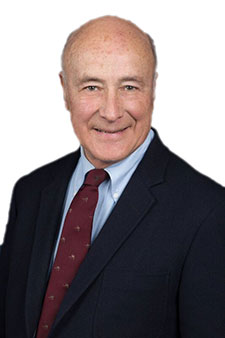
Professor Nye's Bio
Dr. Nye is a University Distinguished Service Professor Emeritus and former Dean of Harvard’s Kennedy School of Government. He received his bachelor's degree summa cum laude from Princeton University, won a Rhodes Scholarship to Oxford, and earned a Ph.D. in political science from Harvard. He has served as Assistant Secretary of Defense for International Security Affairs, Chair of the National Intelligence Council, and a Deputy Under Secretary of State, and won distinguished service awards from all three agencies. His books include "The Future of Power", "The Power Game: A Washington Novel", and (forthcoming) "Do Morals Matter?" He is a fellow of the American Academy of Arts and Sciences, the British Academy, and the American Academy of Diplomacy. In a recent survey of international relations scholars, he was ranked as the most influential scholar on American foreign policy, and in 2011, Foreign Policy named him one of the top 100 Global Thinkers. In 2014, Japan awarded him the Order of the Rising Sun.The talk is based on Professor Nye's book, "Do Morals Matter?"
“How Do Populists Govern?"
By Jan-Werner Müller (Princeton University)
Donald Trump, Silvio Berlusconi, Marine Le Pen, Hugo Chávez, Viktor Orban, Recep Tayyip Erdogan—populists seem to be on the rise across the globe. But what exactly is populism? Is there really a global wave or movement? And how do populists govern? Is populism a threat to democracy or does it represent the “true will” of the people?
The talk is based on Professor Mueller's book, "What is Populism?"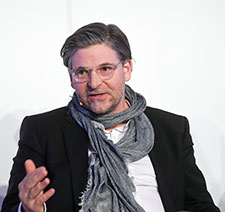
Professor Müller's Bio
Jan-Werner Müller is a professor at Princeton University. His books include "Constitutional Patriotism", "Contesting Democracy: Political Ideas in Twentieth Century Europe", and "What is Populism?", which has been translated into 25 languages. He writes for the London Review of Books, the New York Times, and Foreign Affairs. Jan-Werner Müller studied at the Free University, Berlin, University College, London, St. Antony’s College, Oxford, and Princeton University. From 1996 until 2003 he was a Fellow of All Souls College, Oxford; from 2003 until 2005 he was Fellow in Modern European Thought at the European Studies Centre, St. Antony’s College. Since 2005 he has been teaching in the Politics Department. Photo credit: KD Busch.
“Migrants and Refugees – A Middle East Perspective”
By Professor Karen Jacobsen, Henry J. Leir Professor in Global Migration at The Fletcher School of Law and Diplomacy, Tufts University
Why do some people uproot themselves, while their neighbors stay put? How does the experience of migration affect the migrants, their societies and relations between sending and receiving states? Are there differences between refugees and migrants? How effective are the international laws, policies and organizations that have evolved to assist and protect refugees and migrants?
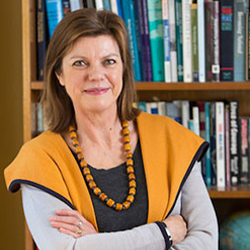
Professor Jacobsen's Bio
Karen Jacobsen is the Henry J. Leir Professor in Global Migration at The Fletcher School of Law and Diplomacy and the Friedman School of Nutrition, and directs the Refugees and Forced Migration Program at the Feinstein International Center. Professor Jacobsen’s current research explores urban displacement and global migration systems. Jacobsen works closely with practitioners and international refugee organizations and consults frequently with UNHCR, IRC, ICRC, Unicef and the World Bank. In 2013-2014 she was on leave from Tufts, leading the Joint IDP Profiling Service (JIPS) in Geneva. From 2000-2005, she directed the Alchemy Project, which explored the use of microfinance as a way to support people in refugee camps and other displacement settings.
“The Two Americas: Can Americans See America the Way the Rest of the World Does?"
By Suzy Hansen, journalist and author
Why do some people uproot themselves, while their neighbors stay put? How does the experience of migration affect the migrants, their societies and relations between sending and receiving states? Are there differences between refugees and migrants? How effective are the international laws, policies and organizations that have evolved to assist and protect refugees and migrants?
The talk was based on Ms. Hanson's book, "Notes on a Foreign Country: An American Abroad in a Post-American World"
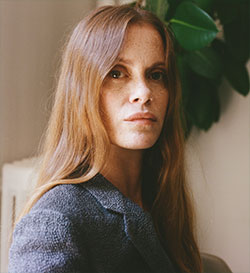
Ms. Hansen's Bio
Suzy Hansen is an American journalist and editor who has lived in Istanbul, Turkey for over ten years. She is a contributing writer for the New York Times Magazine, where she writes mainly on Turkish politics, and has written about foreign affairs for many other publications. Her first book about America's role in the Middle East, Notes on a Foreign Country: An American Abroad in a Post-American World, was published in 2017 by Farrar, Straus and Giroux in the US, and in 2019 by Corsair in the UK. It was awarded the Overseas Press Club’s Cornelius Ryan Award for Best Nonfiction Book on International Affairs, and was a finalist for the Pulitzer Prize in General Nonfiction.
“Is Democracy in Danger – and should you care?"
Professor Jack A. Goldstone 2018 World Affairs Lecture
Many have expressed concerns about President Trump’s impact on our democratic processes. At the same time, democracy scores around the world in 2017 reached their lowest level in the last 13 years. Are these trends related? Should Americans be concerned about the decline in democracy in other countries? Is democracy in the U.S. really under threat? Professor Goldstone will discuss why we need to care about democracy abroad to preserve it at home, and what lessons we can learn from other times in history when democracy was under threat.
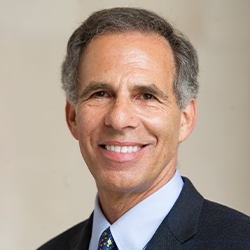
Dr. Goldstone Bio
Jack A. Goldstone is the Virginia E. and John T. Hazel, Jr. Professor of Public Policy at George Mason University, and a Public Policy Scholar at the Woodrow Wilson Center. Previously, Dr. Goldstone was on the faculty of Northwestern University and the University of California, and has been a visiting scholar at Cambridge University, UCLA, UC-San Diego and the California Institute of Technology, as well as director of research institutes at the Russian Academy of National Economy (Moscow) and the Hong Kong University of Science and Technology. He has been a Fellow at the Center for Advanced Study at Stanford University, a distinguished lecturer at the American Academy in Berlin, and won Fellowships from the J.S. Guggenheim Foundation, the MacArthur Foundation and the American Council of Learned Societies. He is the author of Revolution and Rebellion in the Early Modern World, awarded the 1993 Distinguished Scholarly Research Award of the American Sociological Association; Why Europe? The Rise of the West in World History; and nine other books as well as over one hundred and fifty research articles on topics in politics, social movements, democratization, and long-term social change. He has seven times won awards for “best article” in the fields of comparative-historical sociology, political sociology, and social theory, and received the Myron Weiner award for lifetime achievement from the International Studies Association. His current research focuses on conditions for building democracy and stability in developing nations, the impact of population change on the global economy and international security, and the cultural origins of modern economic growth. He has appeared on NPR, CNN, Al-Jazeera, Fox News, and written for Foreign Policy, The Atlantic, the Washington Post, Al-Hayat and the International Herald Tribune. He has also worked extensively on forecasting global conflict and terrorism, and with the US Agency for International Development and the World Bank on providing democracy assistance to fragile states. Goldstone is a life member of the Council on Foreign Relations, and served on the advisory board of the Council’s Center for Preventive Action.
Professor Jack A. Goldstone’s research focuses on conditions for building democracy and stability in developing nations, the impact of population change on the global economy and international security, and the cultural origins of modern economic growth. He has worked extensively with the US Agency for International Development and the World Bank on providing democracy assistance to fragile states. Goldstone is the author of Revolution and Rebellion in the Early Modern World [1993; 2016], awarded the 1993 Distinguished Scholarly Research Award of the American Sociological Association; and, Why Europe? The Rise of the West in World History [2008]. He is blog posts can be found at https://newpopulationbomb.com
"Systemic Corruption and Its Dangers – At Home and Abroad"
Presented by Sarah Hayes - Senior Associate - Carnegie Endowment for International Peace
Sarah Chayes is an international authority on corruption and its implications. Her work explores how it exacerbates international crises such as terrorism, revolutions and their violent aftermaths, and environmental degradation.
Along with Thieves of State, which won the 2016 L.A. Times Book Prize, Chayes is the author of the Punishment of Virtue: Inside Afghanistan After the Taliban
This talk was based on Ms. Chayes' book, "Thieves of State"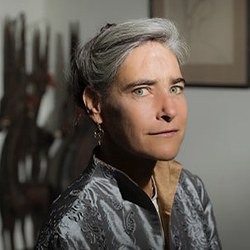
-
Sarah Chayes Bio
Toggle More InfoSarah Chayes, senior associate at the Carnegie Endowment for International Peace and author of Thieves of State: Why Corruption Threatens Global Security, is an international authority on corruption and its implications. Her work explores how it exacerbates international crises such as terrorism, revolutions and their violent aftermaths, and environmental degradation.
In May 2016, Chayes participated alongside UK Prime Minister David Cameron, Secretary of State John Kerry and world leaders from more than 40 countries at the first ever international summit devoted to tackling corruption.
Before joining Carnegie, she served as special assistant to the top U.S. military officer, Chairman of the Joint Chiefs of Staff Admiral Mike Mullen. She participated in Cabinet-level decision-making on Afghanistan, Pakistan and the Arab Spring, traveling with Mullen frequently to these regions. He tapped Chayes for the job after her work as special advisor to two commanders of the international troops in Afghanistan (ISAF). She contributed her unique knowledge of the Afghan south to the ISAF command.
It was a sense of historic opportunity that prompted Chayes to renounce her journalism career in early 2002, after covering the fall of the Taliban for National Public Radio, and to remain in Afghanistan to help rebuild the country. She chose to settle in the former Taliban heartland, Kandahar.
In 2005, Chayes founded Arghand, a start-up manufacturing cooperative, where men and women working together produce fine skin-care products. The goal was to revive the region’s historic role in exporting fruit and its derivatives, to promote sustainable development, and expand alternatives to the opium economy. Running Arghand in downtown Kandahar proved to an extraordinary vantage point for observing the unfolding war.
From 1996-2001, Chayes was NPR Paris correspondent. For her work during the Kosovo crisis, she shared the 1999 Foreign Press Club and Sigma Delta Chi awards.
Along with Thieves of State, which won the 2016 L.A. Times Book Prize, Chayes is the author of The Punishment of Virtue: Inside Afghanistan After the Taliban (Penguin, 2006).
"Why does U.S. Foreign Policy Keep Failing"
Presented by Stephan Walt - The Robert and Renée Belfer Professor of International Affairs (John F. Kennedy School of Government, Harvard University)
What We Learned:
- Why have relations with Russia deteriorated so badly?
- Why have repeated US efforts—by both Republicans and Democrats—to mediate peace in the Middle East failed?
- Why did Republicans and Democrats embrace President Bush’s decision to invade Iraq in 2003, despite clear warnings that the war was unnecessary and that the US had no “exit strategy?"
- Why has President Obama followed many of the same national security policies as his predecessor, even though he was elected in part to change them?
- How are we to understand the failures in Iraq, Afghanistan, Libya, Syria, Ukraine and elsewhere, along with the deterioration of relations with Russia and China and the crises that have buffeted Europe?
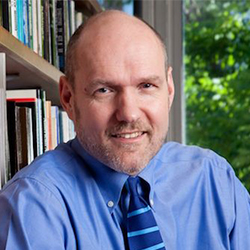
Stephen M. Walt Bio
Stephen M. Walt is the Robert and Renée Belfer Professor of International Affairs at Harvard’s John F. Kennedy School of Government, where he served as Academic Dean from 2002 to 2006. He is a contributing editor at Foreign Policy magazine, co-chair of the editorial board of International Security, and co-editor of the Cornell Studies in Security Affairs book series. He was elected a Fellow of the American Academy of Arts and Sciences in May 2005 and received the International Studies Association’s Distinguished Senior Scholar award in 2014. His books include The Origins of Alliances, which received the 1988 Edgar S. Furniss National Security Book Award, and Taming American Power: The Global Response to U.S. Primacy, which was a finalist for the Lionel Gelber International Affairs Book Award and the Arthur Ross Book Prize. His most recent book, The Israel Lobby and U.S. Foreign Policy (co-authored with John J. Mearsheimer) was a New York Times best-seller and has been translated into more than twenty foreign languages. His weekly FP column is at http://www.foreignpolicy.com/voices/walt
-
We’re Here to Answer Your Questions.
World Affairs Lecture Series
Edwards Hall
10501 FGCU Boulevard South
Fort Myers, Florida 33965
(239) 590-7487

